In previous years we have gone to Chapala where one street has been designated for public altars celebrating their family members. These are colorful and very personal. People sometimes serve food and drink. We didn't make it this year; Pixie had some kind of a bug and didn't feel well, so we stayed home and had a quiet evening. But here is a Picasa photo album of some of the altars in Chapala last night taken by my friend, Ron Mullenaux: https://picasaweb.google.com/
Halloween, which comes a couple of days before the Day of the Dead, is becoming a bigger holiday in Mexico. Children go, often in large groups, from house to house singing, "Quermos! Halloween!" which means literally... "We want! Halloween" It is their version of "trick or treat!" This year we were inundated with children and had to go buy additional candy. Here are some photos of the trick or treaters.
Pixie is still teaching a class for the same four children at the orphanage in Chapala. Like last year, she put on a Halloween celebration for them this year. They dressed in costumes, carved a pumpkin the week before, played games and ate candy. Pixie was dressed as a bruja (broo-ha) or witch, for the occasion. Here are some photos.
Guadalajara's Pan American Games ended last weekend, and from all reports it was a great success. A number of people we know traveled into Guadalajara for some events, and more saw the water skiing event here on Lake Chapala.
My friend Lew Crippen, who accompanied us to the baseball preliminary matches, called to tell me he was going to go up and try to score some tickets to the gold medal match last week and asked if I was game to go. It was another three hour ride, but how often would I get to see this? The semifinal games were Mexico-Canada vs. the US and Cuba. keep in mind, Cuba had won the Gold medal at the last ten Pan Am games, over forty years! But this year, the US beat Cub 12-10, and Canada beat Mexico 5-2, so the Gold Medal game was between the US and Canada. I was hoping for Mexico in the Gold Medal game, but we'd never be able to get tickets for that game, so I guess that was good for us. (Cuba beat Mexico 6-0 in the Bronze Medal game). We got to the game early and found a guy selling two tickets for $1300 pesos, a bit less that $100 US. But since the price of the sold-out tickets at the box office for this game was $800MX each, we grabbed them and had great seats. We enjoyed the friendly Mexican crowd and saw a fantastic game. We were about the only gringos at the game, although I saw a few Canadians waving a Canadian flag behind home plate. The game was a pitching duel, which Canada won 2-1. We stayed for the long-delayed medal ceremony. I am glad I got to see it. Here are some photos (The Canadians are in the dark jerseys).
We got out of the game about 10:30 and wanted to get on the road for the drive home. Unfortunately, we had a flat tire. We had hit a piece of tire on the highway on the way up but didn't think it did any damage. We managed to get the tire off, but all we had for a spare was a donut tire which we could only drive 50 mph on. We were talking with the Mexican man at the gas station where we had stopped, and, unbelievably, he said there was a lantaria, or tire repair shop, open across the street. So I stayed behind and guarded his jacked up car, pictured here:
We got the car back together and hit the road about 11:15. We were a little worried because the tire guy told Lew he fixed the car "poco, not mucho." Well, we didn't really know what that meant, but it didn't sound very reassuring. Nevertheless, keeping an eye on the tire pressure, we made it home a bit after 2AM. Long night, but a fun adventure.
Next Tuesday, Pixie and I are going to the beach on the Pacific coast, Rincon de Guayabitos, for her birthday. Last year we went to Manzanillo instead, but we were disappointed with it, so this year it's back to our favorite beach town. I'll post some photos when we return after the 13th.
Finally, here's an article our Canadian friend, Pat, shared with us about the "Canadian enclave" Ajijic:
Back to Peaceful Canadian port thrives amid a Mexican drug war
Peaceful Canadian port thrives amid a Mexican drug war
October 24, 2011
Robyn Doolittle
About eight years ago, Burlington residents Julianne and Chisholm Lyons moved to a small village called Ajijic about an hour outside of Guadalajara. It is said to have one of the largest Canadian ex-pat communities in the world, with an estimated 8,000 Canucks. At 84, Chisholm is co-president of the Canadian Club. Julianne, 80, a former Etobicoke city councillor, is organizing a music festival featuring Canadian musicians.
Robyn Doolittle/Toronto StarAJIJIC, MEXICO — Every inch of Julianne and Chisholm Lyons’ two-storey Mexican casa is adorned with mementos from their exotic travels. An antique door from Indonesia. Colourful photos of Thailand. Artwork from China. But tucked away in a little corner of their dining room is a keepsake from Canada: a framed photo of their old Burlington home, buried one foot in snow.
“Just a little reminder that we live in paradise,” said 80-year-old Julianne, a former Etobicoke city councillor. “Not that we would forget it.”
“Paradise” is not a word used by too many to describe Mexico these days, not with more than 40,000 deaths attributed to the country’s drug wars over the last five years. A couple of fatal shootings linked to organized crime happened just a few weeks ago in this otherwise charming lakeside village about an hour outside of Guadalajara on Lake Chapala.
The violence seems far removed from the world of the Lyons, who moved to Ajijic eight years ago, lured by its cobblestone streets, gentle pace of life and authentic Mexican vibe.
In fact, Ajijic has been luring snowbirds from the United States and Canada since the 1970s and is believed to be the largest concentrated community of expat Canadians in the world. The local Canadian Club estimates 8,000 Canucks — just over half of the village’s population — call Ajijic home most of the year.
Like everyone in Ajijic, the Lyons are defensive about how Mexico is being portrayed around the world. A recent story that appeared in the Dallas Morning News, which suggested cartels are moving in on the Chapala area, has the entire village incensed. Those in this retirement community make the eyebrow-raising argument that the vast majority of Mexico is safer than Toronto.
The Lyons’ home is in a gated corner of town, but most of the houses in Ajijic aren’t. Etobicoke resident Tom Gladney said a gate isn’t needed.
“People have this very wrong perception of Mexico,” said Gladney, 70, a former executive with Eaton’s. “My son will call and say: ‘How are you doing down there in that third world country?’ and I’ll say: ‘Sorry, can’t talk to you right now. I’m going grocery shopping at Costco.’”
Speaking en route to her morning yoga class, Torontonian Cece Girling, a charismatic former fashion businesswoman, said the cartel rumours are overblown.
“A few years ago, yes some businesses were getting calls — give us money and we’ll protect you. But that happens. The expats are protected because, well, the drug cartels don’t speak English and the Spanish just hang up,” she said, making a left-hand turn at the new mostly English-language movie theatre.
There are subtle signs of the Great White North everywhere in this community.
The supermarket imports authentic maple syrup. There’s an English-language library with 25,000 books. Satellite television picks up Toronto news stations. A popular local pub hosts Hockey Night on Thursdays. (No Canadian beer on tap unfortunately.) There’s even a Wal-Mart.
Every day here feels like late spring. Warm enough to swim — which is good since almost everyone has a pool — but cool enough to spend the entire day outside.
When 84-year-old Chisholm fell gravely ill with colon cancer, the couple didn’t consider for a moment heading back to Canada.
The Lyons pay about $1,200 a year to be part of Mexico’s socialized health care, but to battle Chisholm’s cancer, they decided to use the private system. Between the X-rays, biopsies, MRIs and eight months of chemotherapy — which included a doctor driving from Guadalajara to Ajijic each week to administer the treatment — the total bill was just over $30,000.
“The standard of care here is first-rate. The hospitals are incredible. The doctors are world class. I was very, very sick,” said Chisholm, a former corporate lawyer with an MBA from Harvard. His cancer is gone.
The cost of real estate in the Chapala area had been steadily climbing until 2010. Then the Mexican drug war exploded. Safety fears combined with the American recession has ground the market to a standstill. Sales are down more than 25 per cent.
It takes a certain kind of person to pick up and move to Mexico, so the cast of characters in Ajijic is predictably impressive.
There are world-renowned architects, designers, and artists, high-powered lawyers, a fashion editor and an Olympic figure skater. Engineers, entrepreneurs and corporate executives. Most are retired and eager to redirect their talents.
Donations from expats in Ajijic support about four orphanages, a school for deaf and disabled children, the Lake Chapala Red Cross, and various arts programs.
Nicholas Favian, a bartender at Salt & Pepper tavern who commutes to Ajijic from Guadalajara every day, says the expats are good for the area.
“The tourism is important for this area. They stimulate the economy. They go out more than locals and they tip more. A Canadian will go out four or five times a week. Locals will go out once a week,” said Favian.
And so far, locals have not been shut out from buying homes. The cost of real estate is high for the elaborate villas favoured by expats, but typical Mexican homes are still affordable and are passed down through the generations.
Because the cost of living is so much less, Canadians are able to afford luxuries they might not be able to at home. Mexican maids are paid about $1.50 (Canadian) an hour in Guadalajara. In Ajijic, expats pay about $5 an hour — still a fraction of the cost.
In Ajijic, about $420,000 will get you three bedrooms, four baths, a pool with a waterfall, fireplace, purified water system and fully-equipped gourmet kitchen.
For the Lyons, the only thing that’s missing in Mexico is their children. They have seven, plus four grandchildren.
“All I can say is thank goodness for the Internet,” said Julianne. “And you know they’re getting close to retirement too. We’re not pushing it. We’re not even mentioning it, but — well — wouldn’t that be lovely.”













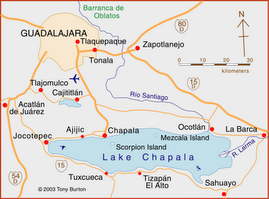










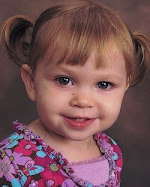









































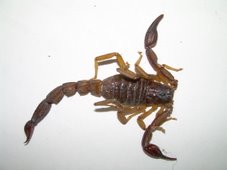

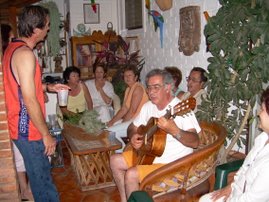






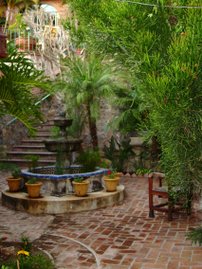
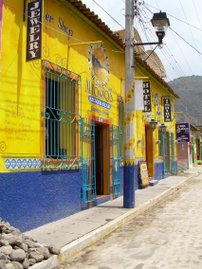
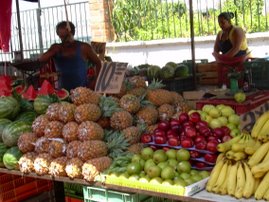


No comments:
Post a Comment